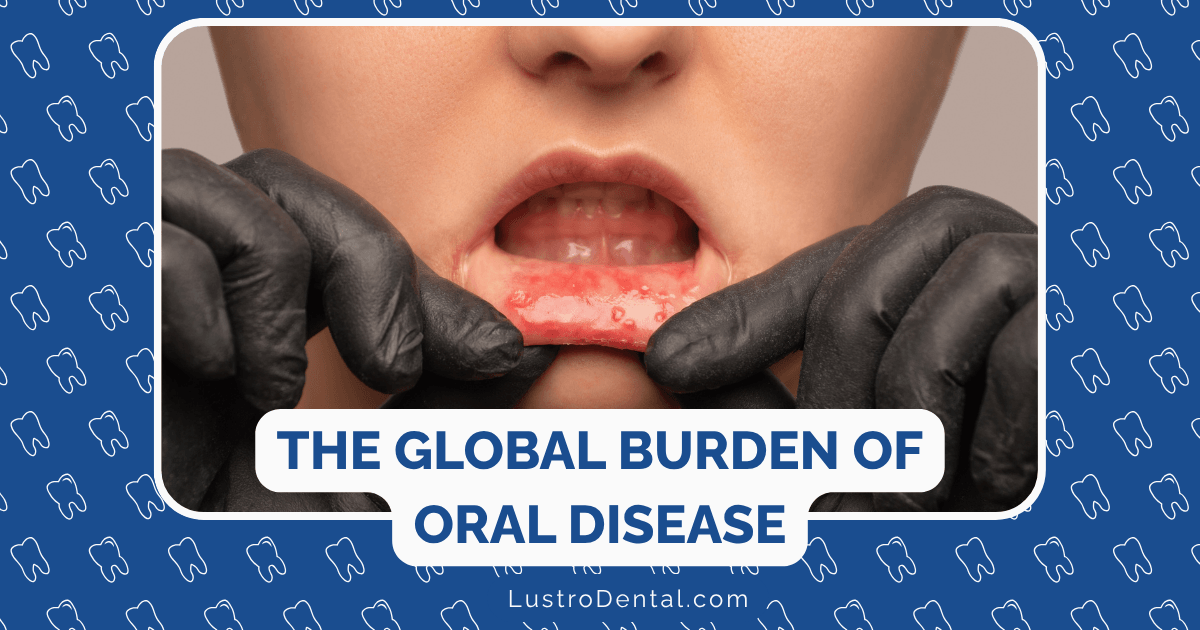Dental Specialties Simplified: What Each Type of Dentist Does

When your dentist refers you to a specialist, it can be confusing to understand exactly why you’re being sent elsewhere and what this new dentist will do differently. With 12 recognized dental specialties in 2025, each with their own focus and expertise, it’s helpful to understand the differences. Let’s break down what each type of dental specialist does in simple terms.
General Dentist: Your Primary Dental Care Provider
Before we dive into specialists, let’s clarify the role of your general dentist. Think of them as your primary care physician, but for your mouth. They:
- Perform routine check-ups and cleanings
- Fill cavities
- Extract simple teeth
- Provide preventive care and education
- Diagnose dental issues
- Coordinate your overall dental care
According to the American Dental Association, general dentists complete four years of dental school after their undergraduate education but don’t require additional specialized training. They’re qualified to handle a wide range of dental issues and will refer you to specialists for more complex cases.
Endodontist: The Root Canal Specialist
What they do: Endodontists focus on diagnosing and treating problems inside your teeth—specifically issues affecting the dental pulp (the soft tissue inside your teeth containing nerves, blood vessels, and connective tissue).
Common procedures they perform:
- Root canal therapy
- Retreatment of failed root canals
- Endodontic surgery
- Treatment of dental trauma
- Diagnosis of complex tooth pain
When you might be referred to one: If you have severe tooth pain, an infection inside your tooth, or a complicated root canal case, your general dentist may refer you to an endodontist.
Fun fact: Endodontists perform an average of 25 root canal treatments per week, while general dentists may do only two, according to Delta Dental. This specialized experience allows them to treat complex cases with greater precision.
Periodontist: The Gum Specialist
What they do: Periodontists specialize in the prevention, diagnosis, and treatment of diseases affecting the gums and other structures that support your teeth.
Common procedures they perform:
- Deep cleaning (scaling and root planing)
- Gum grafts
- Pocket reduction surgery
- Crown lengthening
- Dental implant placement
- Treatment for severe gum disease
When you might be referred to one: If you have advanced gum disease (periodontitis), receding gums, or need certain types of dental implants, your dentist may recommend a periodontist.
Why it matters: According to the Centers for Disease Control and Prevention, nearly half of adults aged 30 and older have some form of periodontal disease. Left untreated, it can lead to tooth loss and has been linked to systemic conditions like heart disease and diabetes.
Orthodontist: The Alignment Specialist
What they do: Orthodontists diagnose and treat misalignments of the teeth and jaw, focusing on improving both function and appearance.
Common procedures they perform:
- Traditional braces application and maintenance
- Clear aligner therapy (like Invisalign)
- Palatal expanders
- Space maintainers
- Headgear and other orthodontic appliances
- Retainer fitting and maintenance
When you might be referred to one: If you have crooked teeth, an overbite, underbite, or other alignment issues, you may be referred to an orthodontist. The American Association of Orthodontists recommends children have their first orthodontic check-up no later than age 7.
Did you know? Orthodontists complete an additional 2-3 years of specialized training after dental school, focusing specifically on tooth movement and jaw alignment.
Prosthodontist: The Replacement and Restoration Specialist
What they do: Prosthodontists specialize in the restoration and replacement of missing or damaged teeth, focusing on both function and aesthetics.
Common procedures they perform:
- Complex crown and bridge work
- Complete and partial dentures
- Dental implant restoration
- Full mouth reconstruction
- Treatment for temporomandibular joint disorders (TMJ)
- Cosmetic procedures
When you might be referred to one: If you need extensive tooth replacement, have complex cosmetic needs, or require full mouth rehabilitation, your dentist may refer you to a prosthodontist.
Interesting insight: Prosthodontists are often called the “architects” of dental care because they create comprehensive treatment plans that may involve coordinating with other specialists to achieve optimal results.
Oral and Maxillofacial Surgeon: The Surgical Specialist
What they do: These specialists perform surgical procedures involving the face, mouth, and jaw, often working on both hard (bone) and soft tissues.
Common procedures they perform:
- Wisdom teeth extraction
- Surgical tooth extractions
- Dental implant placement
- Jaw surgery (orthognathic surgery)
- Facial trauma reconstruction
- Treatment of oral cancer
- Cleft lip and palate surgery
When you might be referred to one: If you need complex extractions (like impacted wisdom teeth), have jaw misalignments requiring surgery, or need treatment for facial injuries, you’ll likely be referred to an oral surgeon.
Worth noting: Oral surgeons complete at least 4-6 years of additional training after dental school, including a hospital-based surgical residency. They’re trained to administer all levels of anesthesia, from local to general.
Pediatric Dentist: The Children’s Specialist
What they do: Pediatric dentists focus on the oral health of children from infancy through adolescence, including those with special healthcare needs.
Common procedures they perform:
- Child-friendly dental exams and cleanings
- Fluoride treatments and dental sealants
- Cavity fillings in baby teeth
- Pulp therapy for damaged baby teeth
- Space maintainers
- Education for children and parents
When you might be referred to one: If your child has complex dental needs, special health conditions, extreme anxiety about dental visits, or if your general dentist doesn’t treat young children, a pediatric dentist may be recommended.
Child-friendly approach: Pediatric dental offices are specifically designed to make children comfortable, with smaller equipment, bright colors, and staff trained in behavior management techniques.
Dental Public Health Specialist: The Community Specialist
What they do: These specialists focus on preventing and controlling dental diseases on a community-wide level rather than treating individual patients.
Common activities they engage in:
- Developing and implementing community dental health programs
- Conducting research on population oral health
- Creating policies to improve dental health
- Advocating for public water fluoridation
- Designing and managing school-based dental programs
When you might encounter one: You typically won’t be referred to a dental public health specialist as an individual patient. Instead, you might benefit from their work through community programs or public health initiatives.
Oral and Maxillofacial Pathologist: The Disease Detective
What they do: These specialists diagnose and manage diseases affecting the oral and facial regions through laboratory tests and tissue examinations.
Common procedures they perform:
- Biopsy analysis
- Diagnosis of oral cancers and other diseases
- Consultation on unusual oral conditions
- Research on oral diseases
When you might be referred to one: Most patients don’t directly visit an oral pathologist. Instead, your dentist or specialist might send tissue samples to them for diagnosis if you have an unusual growth or condition in your mouth.
Oral and Maxillofacial Radiologist: The Imaging Specialist
What they do: These specialists focus on producing and interpreting images (X-rays, CT scans, MRIs) of the teeth, jaws, and surrounding structures.
Common procedures they perform:
- Advanced imaging interpretation
- 3D imaging for surgical planning
- Consultation on complex cases requiring specialized imaging
When you might be referred to one: Like pathologists, you rarely visit a radiologist directly. Your dentist or specialist might consult with one for complex imaging needs or interpretation of unusual findings.
Dental Anesthesiologist: The Pain Management Specialist
What they do: Dental anesthesiologists specialize in pain control and sedation for dental procedures, particularly for patients with special needs or severe dental anxiety.
Common procedures they perform:
- Administration of deep sedation or general anesthesia
- Management of pain during complex dental procedures
- Care for patients with special healthcare needs
When you might be referred to one: If you have severe dental anxiety, certain medical conditions, or need complex procedures that require deep sedation, your dentist might work with a dental anesthesiologist.
Oral Medicine Specialist: The Oral-Systemic Connection Expert
What they do: These specialists focus on the oral health care of patients with complex medical conditions and the diagnosis and management of medically-related disorders affecting the oral region.
Common procedures they perform:
- Diagnosis and management of oral mucosal diseases
- Treatment of salivary gland disorders
- Care for patients with chronic orofacial pain
- Management of oral manifestations of systemic diseases
When you might be referred to one: If you have a complex medical condition affecting your oral health or an unusual condition in your mouth that might be related to a systemic disease, you might be referred to an oral medicine specialist.
Orofacial Pain Specialist: The Pain Expert
What they do: The newest recognized specialty focuses on diagnosing and treating pain disorders of the jaw, mouth, face, head, and neck.
Common conditions they treat:
- Temporomandibular joint disorders (TMD)
- Neuropathic pain conditions
- Headaches related to dental issues
- Sleep-related breathing disorders
When you might be referred to one: If you experience chronic pain in your face, jaw, or head that hasn’t responded to standard treatments, your dentist might refer you to an orofacial pain specialist.
Navigating the World of Dental Specialists
Understanding these specialties can help you better navigate your dental care journey. Here are some tips:
- Ask questions: Don’t hesitate to ask your general dentist why they’re referring you to a specialist and what to expect.
- Coordinate care: Ensure your general dentist and specialists communicate about your treatment. Most specialists will send reports back to your referring dentist.
- Check insurance coverage: Specialist care may have different coverage levels than general dental care. Verify your benefits before appointments.
- Trust the process: Being referred to a specialist doesn’t mean your general dentist lacks skill—it means they want you to receive the most appropriate care for your specific condition.
According to the American Dental Association, approximately 20% of practicing dentists in the U.S. are specialists. These highly trained professionals work together with general dentists to ensure comprehensive care for all aspects of your oral health.
Remember, good dental health is a team effort, and sometimes that team includes specialists who have dedicated additional years to mastering specific aspects of dental care.
Have you ever been referred to a dental specialist? Share your experience in the comments below!







